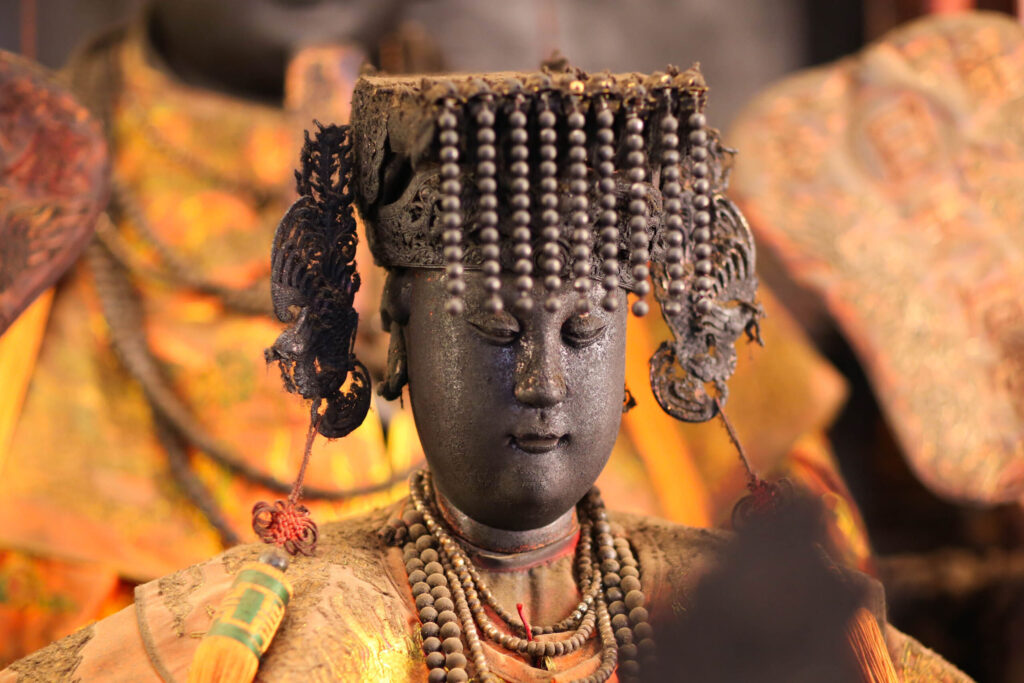Mazu, the Sea Goddess – Protectress of Sailors
Two Mazu Statue in the Main Hall
I. Temple Guardian Mazu
Time of Creation:
Sculpted during the Showa period as part of the renovation of the temple.
This statue is made from solid material, and it is considered the Temple Guardian Mazu.
Location:
Placed at the center of the main hall’s shrine.
Significance:
It is the most prominent and revered Mazu statue in the temple, symbolizing protection and divine authority.
II. Second Temple Guardian Mazu
Time of Creation:
Originally sculpted during the Tongzhi period as part of the temple’s renovation.
Renovation:
During the Showa period, the main hall was renovated, and a larger statue was created, which became the Temple Guardian Mazu.
The soft-bodied statue was re-designated as the Second Temple Guardian Mazu.
Location:
Positioned to the side of the main hall, in a place of respect.
Significance:
Although now considered secondary to the larger statue, it still holds great cultural and historical value, embodying the craftsmanship of the period.
1. Who is Mazu?
Mazu, originally named Lin Mo, was born in Meizhou Island, Fujian Province, around 960 AD. She is a compassionate and powerful figure, revered as the protector of sailors and fishermen. Mazu is worshipped as a goddess of the sea.
2. Why is Mazu's worship so popular?
Mazu is widely revered for her protective and miraculous qualities, especially in relation to maritime safety, the well-being of families, and personal prosperity.
3. How can I pray to Mazu?
Visitors to Tianhou Temple can pray to Mazu by offering incense, making wishes, and presenting offerings such as fruits or flowers as a sign of respect and gratitude.

